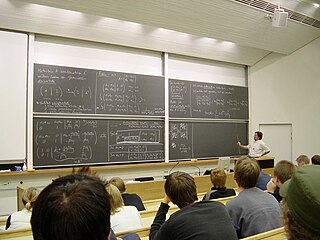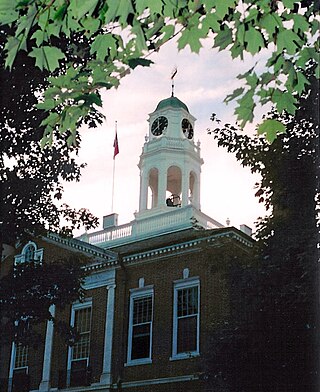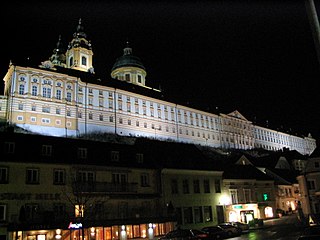
A college is an educational institution or a constituent part of one. A college may be a degree-awarding tertiary educational institution, a part of a collegiate or federal university, an institution offering vocational education, a further education institution, or a secondary school.

A school is both the educational institution and building designed to provide learning spaces and learning environments for the teaching of students under the direction of teachers. Most countries have systems of formal education, which is sometimes compulsory. In these systems, students progress through a series of schools that can be built and operated by both government and private organization. The names for these schools vary by country but generally include primary school for young children and secondary school for teenagers who have completed primary education. An institution where higher education is taught is commonly called a university college or university.

Tertiary education, also referred to as third-level, third-stage or post-secondary education, is the educational level following the completion of secondary education. The World Bank, for example, defines tertiary education as including universities as well as trade schools and colleges. Higher education is taken to include undergraduate and postgraduate education, while vocational education beyond secondary education is known as further education in the United Kingdom, or included under the category of continuing education in the United States.

Vocational education is education that prepares people for a skilled craft as an artisan, trade as a tradesperson, or work as a technician. Vocational education can also be seen as that type of education given to an individual to prepare that individual to be gainfully employed or self employed with requisite skill. Vocational education is known by a variety of names, depending on the country concerned, including career and technical education, or acronyms such as TVET and TAFE.

A student is a person enrolled in a school or other educational institution.

Education in the Netherlands is characterized by division: education is oriented toward the needs and background of the pupil. Education is divided over schools for different age groups, some of which are divided in streams for different educational levels. Schools are furthermore divided in public, special (religious), and general-special (neutral) schools, although there are also a few private schools. The Dutch grading scale runs from 1 to 10 (outstanding).

Gymnasium is a term in various European languages for a secondary school that prepares students for higher education at a university. It is comparable to the US English term preparatory high school. Before the 20th century, the gymnasium system was a widespread feature of educational systems throughout many European countries.

Education in Canada is for the most part provided publicly, and is funded and overseen by provincial, territorial and local governments. Education is within provincial jurisdiction and the curriculum is overseen by the province. Education in Canada is generally divided into primary education, followed by secondary education and post-secondary. Within the provinces under the ministry of education, there are district school boards administering the educational programs.
A college-preparatory school is a type of secondary school. The term refers to public, private independent or parochial schools primarily designed to prepare students for higher education.
Education in state institutions is at the initial, primary, secondary and tertiary levels and in the undergraduate university level. Private education is paid, although in some cases state subsidies support its costs. According to studies by UNESCO, education in Argentina and Uruguay guarantee equality to have institutional features that hinder the commercialization of education, as well as Finland has characteristics that favor multiethnic population education and special education, education favors Argentina equality. According to the last census, the illiteracy rate is 1.9%, the second lowest in Latin America. In the last decade, Argentina has created nine new universities, while the outflow of university students increased by 68%.

A state school or public school is a primary or secondary school that educates all students without charge. Such schools are funded in whole or in part by taxation.

A private school is a school not administered or funded by the government, unlike a public school.

A vocational school, trade school, or technical school is a type of educational institution, which, depending on the country, may refer to either secondary or post-secondary education designed to provide vocational education or technical skills required to complete the tasks of a particular and specific job. In the case of secondary education, these schools differ from academic high schools which usually prepare students who aim to pursue tertiary education, rather than enter directly into the workforce. With regard to post-secondary education, vocational schools are traditionally distinguished from four-year colleges by their focus on job-specific training to students who are typically bound for one of the skilled trades, rather than providing academic training for students pursuing careers in a professional discipline. While many schools have largely adhered to this convention, the purely vocational focus of other trade schools began to shift in the 1990s "toward a broader preparation that develops the academic" as well as the technical skills of their students.
In Russia, the state provides most education services regulating education through the Ministry of Education and the Ministry of Science and Higher Education. Regional authorities regulate education within their jurisdictions within the prevailing framework of federal laws. Russia's expenditure on education has grown from 2.7% of the GDP in 2005 to 4.7% in 2018 but remains below the OECD average of 4.9%.

The Republic of Austria has a free and public school system, and nine years of education are mandatory. Schools offer a series of vocational-technical and university preparatory tracks involving one to four additional years of education beyond the minimum mandatory level. The legal basis for primary and secondary education in Austria is the School Act of 1962. The Federal Ministry of Education is responsible for funding and supervising primary, secondary, and, since 2000, also tertiary education. Primary and secondary education is administered on the state level by the authorities of the respective states.

Education in Botswana is provided by public schools and private schools. Education in Botswana is governed by the Ministries of Basic Education. and Tertiary, Research Science and Technology Among sub-Saharan African countries, Botswana has one of the highest literacy rates. According to The World Factbook - Central Intelligence Agency as of 2015, 88.5% of the population age 15 and over can read and write in Botswana were respectively literate.
Educational institutions are often categorised along several dimensions. The most important is perhaps the age or level of the students in the institution, but funding source, affiliation, and gender, racial, or ethnic exclusivity are also commonly used.
Education in the Philippines is compulsory at the basic education level, composed of kindergarten, elementary school, junior high school, and senior high school. The educational system is managed by three government agencies by level of education: the Department of Education (DepEd) for basic education; the Commission on Higher Education (CHED) for higher education; and the Technical Education and Skills Development Authority (TESDA) for technical and vocational education. Public education is funded by the national government.
Education in Belize is governed by the Education Act.
Education in the Czech Republic includes elementary school, secondary school, and post-secondary school. For students ages two to five, there are preschools that are generally not state-funded until the year before elementary school. After preschool, parents are not charged for tuition, but they must provide, stationery, and food for their children. A number of private schools exist across the country, but these schools are largely financially inaccessible for most children. There is an ongoing national discussion regarding the introduction of tuition fees for university education.















